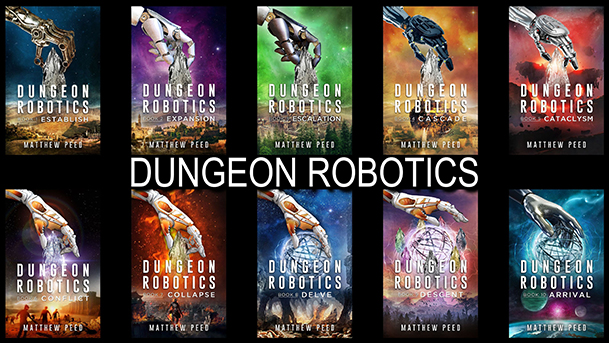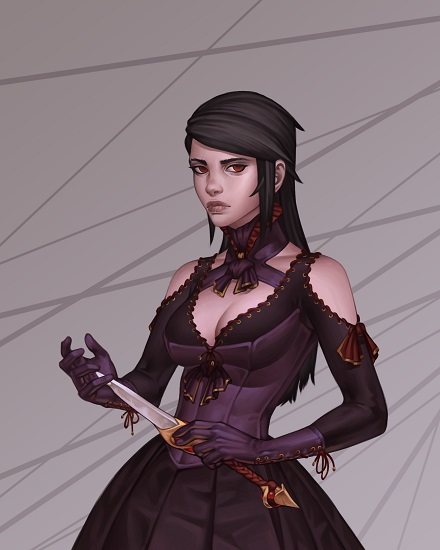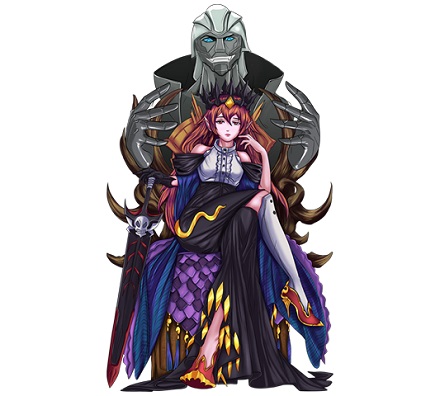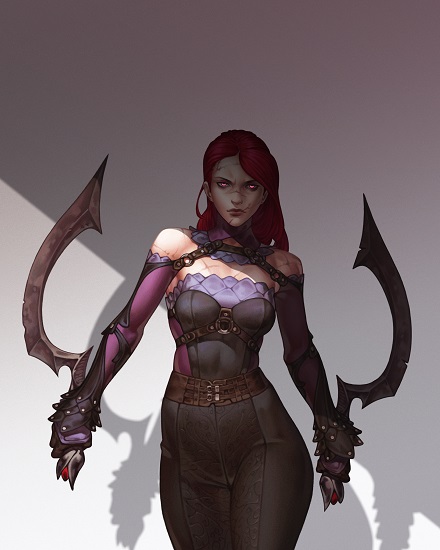We here at Tellest recently had the good fortune to be introduced to the stellar, vast Dungeon Robotics series by prolific author Matthew Peed. As great as it is to be able to read the books, being able to hear straight from the author himself is an even cooler experience, and we’re sure you’ll love hearing all about the backstory, the process, and the future for this fantastic talespinner.
Tellest: Hello Matthew! I wanted to take this opportunity to thank you, not only for introducing me to your expansive catalog of books, but also for taking the time to chat with me. If the vastness of your library is any indication, you likely don’t have a lot of time, so I appreciate that you’re sharing some of it with me and hopefully a bunch of new fans. You’ve no doubt got a lot to talk about, so let’s dive in and show a new audience what makes you and your books so different.
Matthew Peed: Thank you, Mike.
T: I like to begin these interviews by tapping into what sort of built up the foundation of the writers I meet, scoping out what sorts of inspirations led them to the point where they are crafting their own stories. Were you introduced to any fantasy or sci-fi authors or other media growing up that helped to sort of shape the storyteller you are today?
MP: I started reading as a passion toward the end of middle school. I happened to get one of the first kindle devices and it was like I had been given a key to thousands of different worlds. I had always enjoyed Fantasy the most. Worlds that were so different and yet similar! It was interesting to see these incredible places built by other authors.
I had always been interested in writing personally. I probably went through the same phases that most geeky kids go through. I would try to write something in a notebook only to get a few paragraphs or even a few pages in. When I was younger, however, I enjoyed reading much more than writing and was content to sit back as a consumer.
I got my main start from a website called RoyalRoadL. A blog type site where people would upload their stories chapter by chapter. There I found a type of fantasy books that dealt with Dungeon Core. The Slime Dungeon and the Divine Dungeon were the two most influential for me. I started Dungeon Robotics on RoyalRoadL shortly after that.
I enjoyed that as a hobby for a while since it gave me feedback and like-minded people that I knew enjoyed what I was writing about. It was actually the readers on the site that convinced me to start treating like a product. I created a Patreon, which I still have for any interested, that grew over a few months to the point I was paying several bills with the income. Thank you to all those that helped.
It was about six months after that, that I moved to Amazon. As a single father, I wanted to provide for my daughter without slaving away at a job that provided barely enough income for us to live on. That’s how we came to be here today.
T: For someone like me, who has only a vague understanding of what Royal Road is, how would you explain it to readers or would-be writers? Is there a difference between Royal Road and RoyalRoadL? Is it anything like WattPad, or Kindle Vella?
MP: It’s pretty straight forward. Royal Road and RoyalRoadL are the same thing, I believe. WattPad is a rival site, I believe. I’ve never actually looked too deeply at it since I was already invested in RoyalRoad from the start as I was a reader long before I started writing on the site. RoyalRoad is largely fantasy and sci-fi based. I’ve only seen very few novels that were anything other. As I mentioned, it’s a fairly good place to attract alpha readers. That said, it is still a website on the internet. You have to be careful about the usual issues such as trolls, and other nasty dwellers that like to lurk on such places. It is easy to take someone ranting about everything wrong with your novel to heart and lose your courage. My best advice is to treat such websites with a grain of salt until you find your beta readers, if you like to use such resources.
T: You did touch on another topic worth talking about a bit more. With you especially, having received so many reviews, you’re bound to eventually run into the ones that don’t quite jive with the content. Sometimes there’s constructive criticism, but other times negative reviews can seem spiteful. How do you deal with either of them? Is it just a notion of having to develop a thick skin?
MP: Oh! This is a big thing for me. When I released, I think it was the first dungeon robotics book, I got a review that was a blatant lie. The person claimed some rather unsavory actions took place at the start of the book and gave it a one star review. It took me a while to realize that you just have to live with it. Some of the reviews can be removed, but a lot of Amazon’s features are automated. Even after a few dozen people reported the review it stayed there. There is no telling how many sales I might have lost because of this person.
Fast forward a bit down the road, I’ve learned that bad reviews are just a staple of the internet. Compared to a while ago, reviews are a bit harder to falsely post, but as always people find ways to get around those checks. What really helps is having a large catalog. People that care about what sort of series they are getting into might check the reviews from the later books. Very few people that rate 1 star on the first book continue to read the rest of the series. That’s one of the best things I like about Amazon. You have to actually read I believe over eighty percent of the book for reviews and ratings to be accepted.
Let’s move away from the negative and look at the positive about bad reviews. I love seeing reviews that are actually honest good or bad. I’m a firm believer in constructive criticism. As long as you’re telling the truth, I’m willing to listen to your point all day long. If someone on book nine says I’ve stopped this or that, or I’ve completely disregarded a plot, character, or location that I’ve built in the world, then one that tells me that the person really cares about the world I’m building and that what I want to show might be different than what they want to see. I’ve mentioned that I am mainly building this world for myself, but in by showing it to others, then it becomes almost my duty to at least attempt to show them what they want to see.
Finally, a thick skin is good for more than just bad reviews. Good reviews might be nice to look at but, I’ve found another issue that comes with them. Pressure! The pressure to deliver something that this person loved all over again. Some of the reviews praise my works in such a way that I almost have a panic attack when I start to worry that I’m going to write the story into a place this person hates. I know what its like to read a story that had two, three, four amazing books only to get the next one and start to wonder if it was written by someone else entirely. Thick skin is good in a sense that you are able to stay true to your creation because trust me, the pressure is unbelievably heavy.
T: You mentioned Patreon, and you’ve certainly seen success there. It’s a difficult platform to find momentum on in some cases though. What would you say was integral to your growth there? Was there a way you found new fans, or a step in your process that you believe helped to expand your reach?
MP: Again, RoyalRoad. When I started on Patreon, a large chunk of the story was already on RoyalRoad, along with a good number of followers. A few readers mentioned wanting to support my work while gaining benefits. As a writer, it is hard and easy to set up rewards for patrons. To begin with, a common benefit is staggered release of chapters. People on Patreon at the ten-dollar tier get chapters up to two weeks before people on the five dollar tier and even more so when I was still publishing on RoyalRoad. Toward the end of my works on RoyalRoad, I was a full book ahead of the free site. I would still be posting on there if it were not for Amazon’s policy involving public domain sites. Brag moment, I reached top ten and was a fairly popular author on the website for the longest time. Dungeon Robotics had over five thousand followers toward the end.
As I’m sure anyone reading this might have seen from various help videos and articles, social media or any platform that people can freely find your stuff before reaching a paywall is a great driver. As they say, you need a good hook. With how much content has flooded the market during the pandemic and whatnot, a good hook is more often somewhere outside the book itself nowadays. Just getting them to the landing page on Amazon is a small achievement in my opinion.
T: With Amazon set up the way it is, do you have to remove access to your chapters on Patreon after the full book is published, or does it seem that Amazon doesn’t really care about the individual chapters posted separately like that?
MP: Pay wall. This is a bit of a gray area, but because you have to pay to access the content on Patreon, I can technically get away with it. Hopefully, after this interview goes live, I don’t get a strike. Amazon does have some amazing A.I.s and staff when it comes to dealing with copyright. The RULE is that you can have no more than ten percent of the book available anywhere other than Amazon. I attempted to leave one of my stories on RoyalRoad and I got hit with a strike probably five or six months later. There is also the fact that everything on Patreon is largely unedited. This gives me a bit more leeway in that regard. Some chapters end up being completely different than what is published. Adding in comments at the top and bottom of the chapters can also be regarded as a sort of commentary and helps to give some space for arguing your point.
T: For all those who dream of giving up their day job to become a writer, you make it seem possible! Yet, we don’t want to undercut how hard you work, and how much content you’re working on. What do you think it is about your work ethic that allows for such a constant stream of content? Do you think that if you were writing, say, two books a year, that it would still work out the same way it has?
MP: No. At least, not unless you write the next Harry Potter. That’s not to say it’s not possible. Self-publishing has a lot of pros and cons that I won’t get into, but one of the biggest is the lack of an advertising team. Luckily, when I managed to go full time, I had a big following from RoyalRoad and Patreon that managed to boost my numbers enough for the Amazon algorithm took notice. I was also unique and fresh enough that the community took notice without me having to do much advertising. Being fully honest here, that hurt me in the long run. I am now three years in with basically no idea how to work the marketing/advertising angle of things.
Another thing that kept my numbers up on the Amazon warfield was my rapid release schedule. I released a novel just about every month since July 2019. I tried to take a break this year by having a slower release schedule with a few side projects I was working on, and I just want to say I regret doing so. I enjoyed writing the books and they all have good reviews, but because they went onto the market fresh, no one really paid them much attention.
When I went full time, I had been publishing for over a year, but not making enough to pay all the bills. I was told by someone else in the field that you didn’t want to go full time until you made enough money to cover at least three months of expenses. That is a lot easier said than done. I’m not sure of the magic that played into my success. It might have been the pandemic with people having nothing to do and forced to stay home. The rapid release schedule. Or something else entirely. But I can say that if I wrote just two books a year, I’d have to get a day job again. Of course, with proper advertising that might not be the case. As I’ve said before, marketing isn’t exactly my strong suit.
T: Marketing is certainly a difficult beast to tackle. I know there are a few sites that are often touted as good directions to go in, with BookBub identified as almost the holy grail of getting your work out into the world. Was that every something you pursued?
MP: The extent of my advertising lies in Amazon Ads. I was able to make enough to pay my bills for a long time. I am part of a group on Facebook, called 20booksto50k, part of the reason I never actively worried about advertising was that I saw people paying thousands of dollars only to see a small return when I was blasting the numbers that they gave for self-publishing authors without doing much at all. I guess at the end of the day, I took it for granted. Which I regret incredibly very day recently.
Another issue I had was that I simply didn’t know what was a scam and what was legitimate. I have gotten plenty of emails about sites that will blast out my book to 500k+ subscribers since I started publishing. With the way the internet is, I just have little faith in those services. Being a rather rural area in America, I had no where that I could go for advice. And the most used service, Youtube, only had authors that were selling to a few hundred people giving advice. Or they had tips but it was for the wrong audience. As you can see, I’ve simply had a lack of resources in regards to advertising.
T: You have several series that you work on, and we’ll touch more on the rest of them in a little bit, but Dungeon Robotics seems to be the one that you are most prolific with. With the sheer number of releases that you’ve had with it, I’d love to know how the idea of it came across your mind, and what the first steps were for bringing it to life.
MP: As I mentioned before, I greatly enjoyed the dungeon core genre. The idea of an entity being able to create on a whim almost gave such creative freedom that you can pretty much do anything. Add onto that the fact that the main character, a robotics scientist that came from a slightly futuristic Earth to a Middle Ages world that was all about swords and magic, I was literally free to do anything that I could imagine.
Of course, I added rules. It wouldn’t be fun if the world ended after just a few chapters. I will be honest, I never imagined the series growing to the point that it has. As I said before, I had the series on RoyalRoad for a while. If I hadn’t done that, the story probably would have ended much sooner. However, because I was getting feedback almost daily from dozens of people that wanted to know more about this or that, I was able to turn the story into what it is today. It often surprised me what parts of the story people wanted to know more about.
Another big driver for me was a particular scene that I envisioned when I first started writing the series. This scene filled my dreams and daydreams. I revised it over and over again in my head. You might ask, why not start with that scene then, but I had built rules into my world. It had to come about naturally. Just like something in the real world. In the end, that gave rise to almost eight books before I reached the point that I could write out my envisioned scene. Luckily, I had more to work towards, so I didn’t ruin my series, haha.
T: When you began writing the Dungeon Robotics series, did you know just how truly massive it would become? Some people struggle with just the idea of one book, but you’ve got a tremendous amount now, and it almost seems as though you must have had some vision of the future to prepare for all of this.
MP: It looks like I answered this question already, but I can expand. Again, no. For instance, I was writing the first book on Royalroad. In my original work, the main character creates a power source for his works in just a few weeks that would have tipped the balance in his direction. However, as I posted the chapters, people asked for more on this or that, because I wrote that extra content, I was able to flesh out the rules a bit more and thus give the world more grounding.
As for a vision of the future, I have thought many, many times of how the series might end, where it might go, and so on from day one. As I’ve mentioned, I love to read. I’ve hundreds of stories that ended poorly, greatly, and everything in between. My desire is to write an ending that people can think back on and decide it was great. Plus, as I said before, Fantasy just gives a person so much freedom to create. You’re really only limited by your imagination by that point.
T: As expansive as all of your projects are, is it something that you’re able to accomplish all on your own, or have you developed a team, of sorts, to help you bring everything to life?
MP: I have written the story on my own. That’s not to say my readers haven’t helped. The feedback and support I got from the readers on RoyalRoad paved the road for the series. I do have an editor that I’ve had since day one. Let me tell you, finding a good editor is like digging for gold. When you find one, hold on with everything you’ve got!
After that, I have taken story development advice a few times. This might just be me, but each time I let a third party have input on my story, I have hated it and eventually changed it. Again, I know of several people who do well with group projects, but for me, if my gut says the story is good then it is good to me. At the end of the day, I am ultimately writing this story for myself after all.
T: A similar question, I suppose, to the last one, but how engaged would you say your readers are to your gamut of projects? Do you allow them to see a bit behind the curtain in any way?
MP: When I started out, I used RoyalRoad. You get a good mixture of criticism and feedback. A lot of people on that website read all the time and can keep you current on certain topics and tropes. However, I have had to stop posting on that site due to Amazon’s strict rules. They are not afraid to strike your account if you leave content posted on such an open-source site. While I could still work on the new content there, it was hard for some of the readers to accept so much of the content being missing.
Nowadays, I use Patreon to get early impressions. Since people are paying for what you’re putting out. You find out pretty quickly if they don’t like what you’re making. Other than that, I believe in trusting in my gut. If I like it, then there’s a good chance other people like it.
T: In order to keep up with all of your projects, you must have an incredible work ethic as it pertains to keeping your word count up. How many words do you try to keep yourself to each day? How long would you say a chapter in each of your stories, across the many series, takes to write, on average?
MP: This is a challenge! Writing is like breathing for me. That said, when you’ve done it full time for over three years it gets to be a bit tedious. Add on that the fact that I work from home in a rural area where any sort of coffee shop is about thirty minutes away, some days are harder than others to crack open that laptop, but you have to force yourself. The best way I’ve found is to put deadlines in place that get you in trouble if you miss them. Such as Amazon’s preorder. If I miss that deadline, I have to wait six months before I can put up another preorder.
Back to the point asked. I make sure to get at least two thousand words minimum a day. That is the average length of one of my chapters. My normal method is to write a full chapter then the first paragraph of the next chapter. As I am a pantsers writer, it helps orientate me when I start the next day. When I am having a good day, I can easily get down ten thousand words in an average eight-hour work day. I once managed to finish a 80k manuscript in ten days. Not too bad, if I do say so myself.
T: Do you participate in projects like NaNoWriMo? I find it a challenge to write 50,000 words in that time period, but I wouldn’t be surprised if you could crank out three books in the same month!
MP: Not yet. I have been meaning to give that a try. Every time I see it, it is usually halfway through and I’m in the middle of a project that I need to finish for my editor. I have heard that it is a fun project to undertake. I’m pretty sure that I could make the word goal. I wouldn’t be sure about the plot until I wrote the story though.
T: It sounds like you do your own NaNoWriMos throughout the year, so no worries there. I think if you keep on doing what you’re doing, you’ll find success on your terms!
MP: Thanks, Mike! Probably not this year, but I certainly plan to try for next or the year after. As an author, I need some bragging rights! Haha!
T: We mentioned earlier that Dungeon Robotics is not the only series that you write for. Instead, you’re working on a collection of other projects as well. Do they typically intersect, either within their storylines, or even just when you’re writing. For instance, when you’re writing Dungeon Robotics, do you also tag one project out to write another, like Elemental Accords?
MP: Ah, the multiverse. I do so love the concept. Yes. Several of my stories intersect. Dungeon Robotics for instance, is the main universe with its evil brother being Dungeon Annihilation which is an evil version of the same main character at the same starting point as the main series. Another series that has hinted at being connected to Dungeon Robotics is Revenge of the Sorcerer king.
My other series, Elemental Accord and Doll Dungeon are intersected themselves. Just recently in fact. I have played with a few ideas for them all to come together in the future, but certain rules are vastly different between the universes. Depending on the situation, one hero might be far weaker than the other thus I have held off on any sort of crossover event like that yet.
T: Have there been any stories that you’ve wanted to start but just haven’t had the opportunity to begin yet? Something outside of the realm of what you’ve currently released?
MP: Of course. My folder is filled with ideas that I want to work on, but I have a bad habit of starting something then getting possessed by it neglecting my current projects. As for genre, not really. I greatly enjoy fantasy and sci-fi. The thought of writing something, mundane, seems counterproductive to me. Real life gives me plenty of that. I’m almost a hundred precent sure that if I tried to write a slice of life story, there would be magic by the tenth chapter.
T: There’s certainly nothing wrong with that!
Stepping outside of the books and genres, what about other mediums? Did you ever think about releasing, say, a graphic novel of one of your books, or have you imagined seeing your book brought to life as a TV show or movie?
MP: I’m your typical nerd. I love anime! I would love to see any of my series animated or yes, as a graphic novel. Even a live action would be awesome. Sadly, those things require either A. A lot of money, or B. connections. Very few people can walk into, say, Netflix with their idea and get picked up right then and there. Those that do, like the Wheels of Time or Lord of the Rings have much, MUCH bigger audiences than I do. An anime is almost impossible without living in Japan. Perhaps in a few years, I will be able to feed my book to one of the Hyper advanced A.I.s and it will animate it for me.
A graphic novel would be easier and cheaper. From my research, the best way for that medium to happen is to find an artist that likes your story, can see the same vision you have for it, and is willing to do some level of profit share. That will entice them to work hard to deliver a product that is of good quality and not just what they are getting paid for. Again, Japan is where many of those talents lie. The Western market is certainly growing, but it is difficult to find them.
T: If someone wanted to know more about Matthew Peed, where would be the best place on the internet to direct them toward? Do you have a website that you share with readers, or are you more active on a specific social media channel?
MP: I have my Patreon. https://www.patreon.com/DungeonRobotics. I update one of my stories daily on that site. There is also the Sprocketed Ink Twitter which I try to update regularly. I had a website at one point, but the person that managed it disappeared on me which is another issue, and it has gone defunct. Then there is my discord server where I am fairly active. Feel free to talk to me there whenever! https://discord.gg/wPPB7JC
T: Matthew, I wanted to take this opportunity to thank you for sharing some of your time, and enlightening me and the readers to your process, your catalog, and what comes next. I must say I’m incredibly impressed by your work ethic, and I hope that it continues to earn you new readers and fans!
MP: Thank you again, Mike. I know I’ve enjoyed this interview. You don’t really stop and think about some of these things unless asked. It was a great opportunity for me.
Once again, I’d like to thank Matthew Peed for taking the time to talk to us about Dungeon Robotics and his other books. It’s always a great experience getting to know how an author works their way through the writing process, and to see how integral their fans are to what they’re creating. We recently promoted the first book in Peed’s most expansive series, and would definitely recommend it. Check out Dungeon Robotics (Book 1): Establish on Amazon today! It’s a fantastic time because you can get it absolutely free between October 12th and October 15th!
Michael DeAngelo
Latest posts by Michael DeAngelo (see all)
- Fantasy Promo – Quinine - July 25, 2024
- Sigil Art – Grim’s Hold - July 24, 2024
- Fantasy Promo – Light the Shadows (Under Elfhame’s Stars) - July 24, 2024





